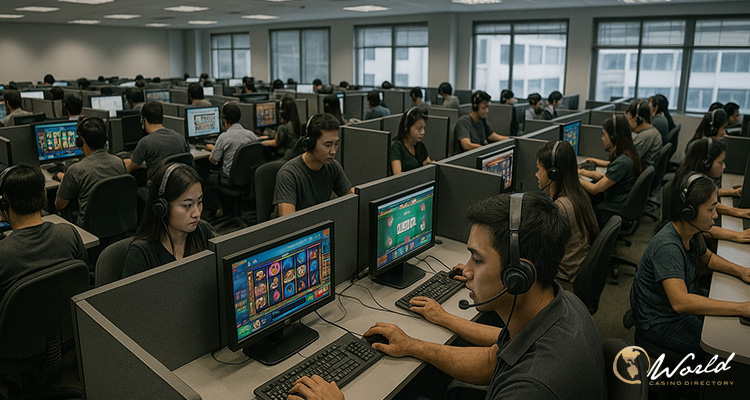Online gaming stakeholders in the Philippines have issued warnings over the far-reaching consequences of proposed legislation that would impose a blanket ban on the legal sector. According to licensed operators, the move could result in over 50,000 job losses and significantly reduce government revenue while driving gambling activity into the hands of unregulated, illegal operators.
Licensed Operators Defend Track Record, Warn of Black Market Surge
Industry data released this month and cited across multiple local media reports reveal the sector’s economic footprint, which includes support for tens of thousands of jobs in areas such as customer support, IT, compliance, marketing, and game development. With mounting opposition from legislators pushing for a total shutdown, operators and advisors are calling instead for stronger regulation rather than prohibition.
“The real enemy is illegal, unregulated gambling, not the licensed platforms that follow strict safeguards and contribute meaningfully to national development,” said Tonet Quiogue, CEO of Arden Consult, according to The Philippine Star (Philstar). “Legal operators in the Philippines are already aligned with global best practices. They implement robust KYC, age verification, self-exclusion tools, and real-time monitoring. You ban those, and what you get is a black-market surge.”
Quiogue also emphasized the need to protect the existing regulatory infrastructure. “The infrastructure is already in place. What we need is stronger enforcement against illegal operators, not policies that penalize the compliant,” she added.
These sentiments have gained traction as debate intensifies over bills introduced by Senators Juan Miguel Zubiri and Christopher Go, both of whom seek to outlaw online gambling. Meanwhile, some policymakers such as Finance Secretary Ralph Recto and PAGCOR Chairman Alejandro Tengco favor tightened oversight over outright bans.
Billions Contributed to Public Funds at Stake
The legal online gaming industry contributed more than PHP112 billion (US$1.96 billion) to the Philippine government in 2024 alone. This included PHP16.6 billion allocated to PhilHealth for universal healthcare and PHP46.32 billion remitted to the national treasury. An additional PHP12.37 billion went to socio-civic programs administered through the Office of the President, and over PHP5.9 billion was collected in taxes by the Bureau of Internal Revenue.
PAGCOR’s own financials reinforce the sector’s value. In the first quarter of 2025, PAGCOR reported earnings of PHP28.1 billion, with PHP25.5 billion sourced from gaming activities. E-Games and E-Bingo combined to contribute 56% of that total, generating PHP14.32 billion. Since regulatory reforms in 2022, license fees have surged from PHP12.3 billion to over PHP54 billion by 2024.
Given the country’s current national debt of PHP16.4 trillion and pressure on tax revenues, economic analysts and officials alike have expressed concerns about abandoning such a significant revenue stream.
Rather than banning the sector, PAGCOR has taken steps to enhance control over its operations. On July 16, PAGCOR and the Ad Standards Council signed a memorandum of understanding to regulate all gambling-related advertising. This includes a pre-screening process for any promotional materials released across traditional and digital platforms.
Secretary Recto has suggested new measures such as a 10% additional tax on the online gaming industry and mandatory stock exchange listing for operators. Secretary Arsenio Balisacan of the Department of Economy, Planning, and Development has also supported increased taxation, including potential levies on e-wallets used for gambling.
However, the Catholic Church and anti-gambling advocates have voiced opposition, citing social harms linked to online betting. Cardinal Pablo Virgilio David of the Catholic Bishops’ Conference of the Philippines stated that the risks to society outweigh the monetary benefits of licensing.
Despite differing perspectives, one point of consensus appears to be growing: illegal gambling remains a persistent threat. Quiogue warns that prohibiting the regulated sector would not end online betting but instead push it underground, making enforcement more difficult and stripping players of protections.
“A total ban will not stop online gaming,” she stated. “It will only shift activity to unregulated sites, at the cost of jobs, public funds, and player protection.”


